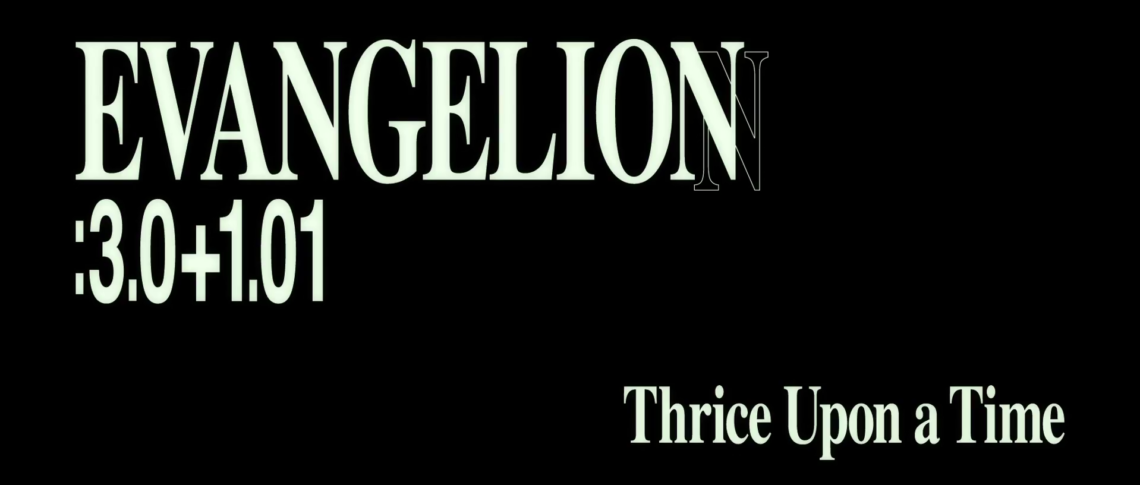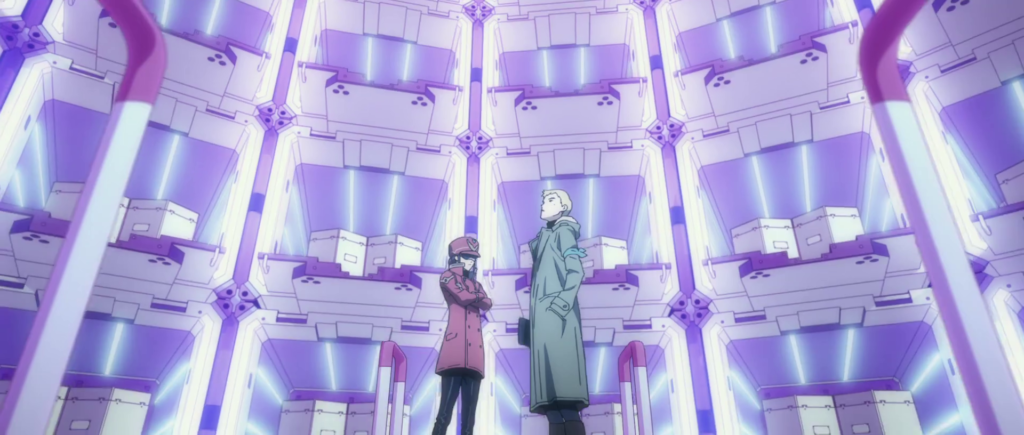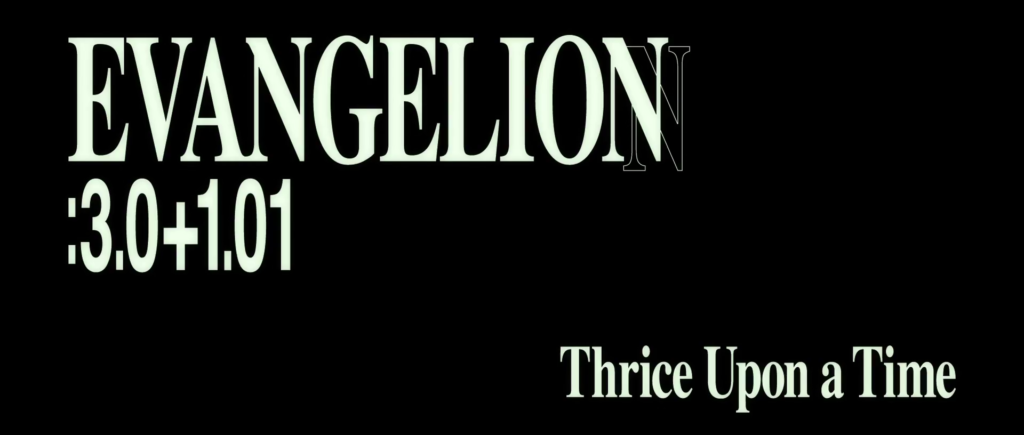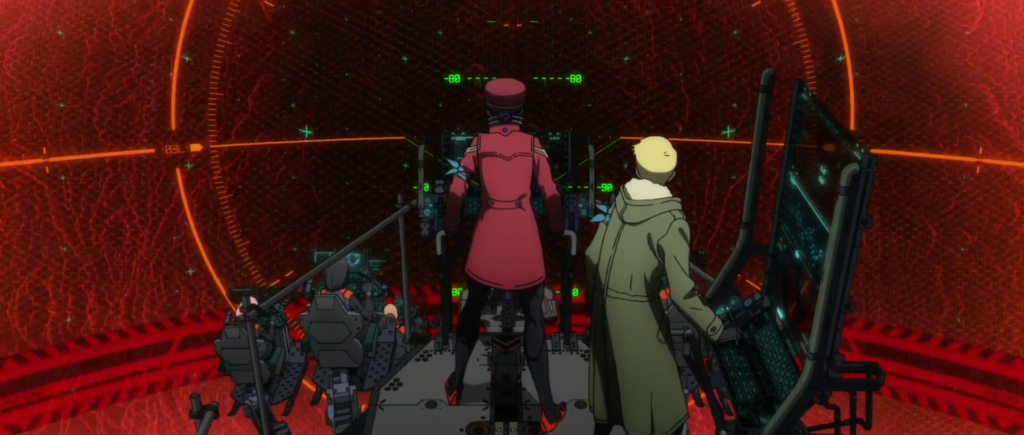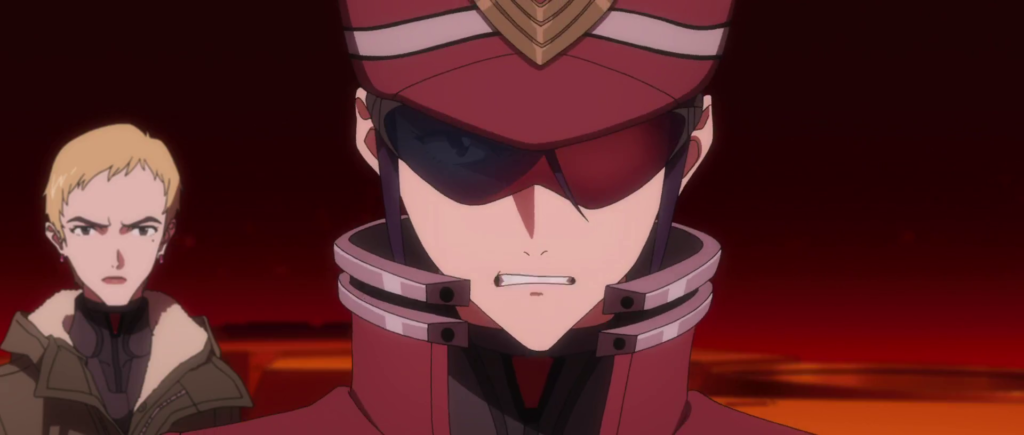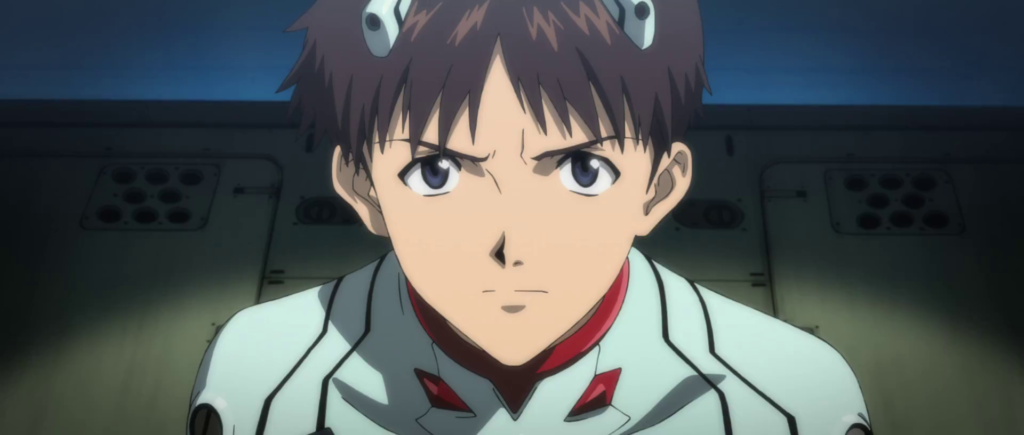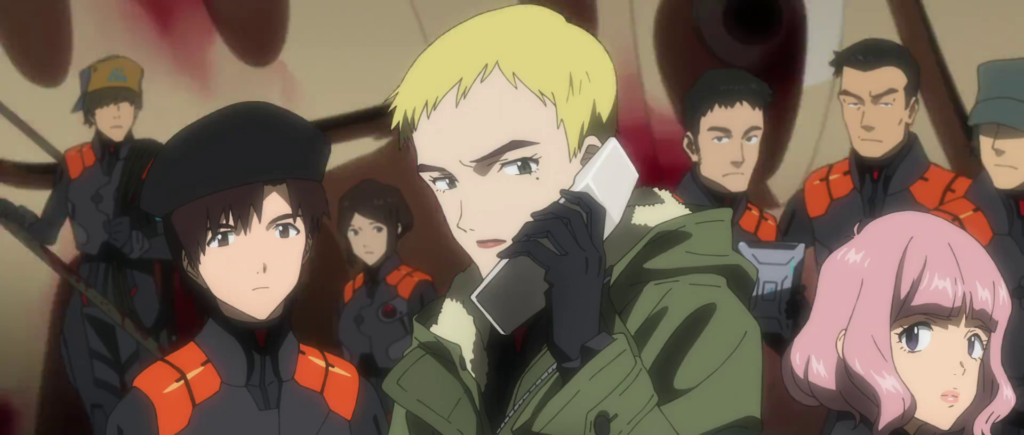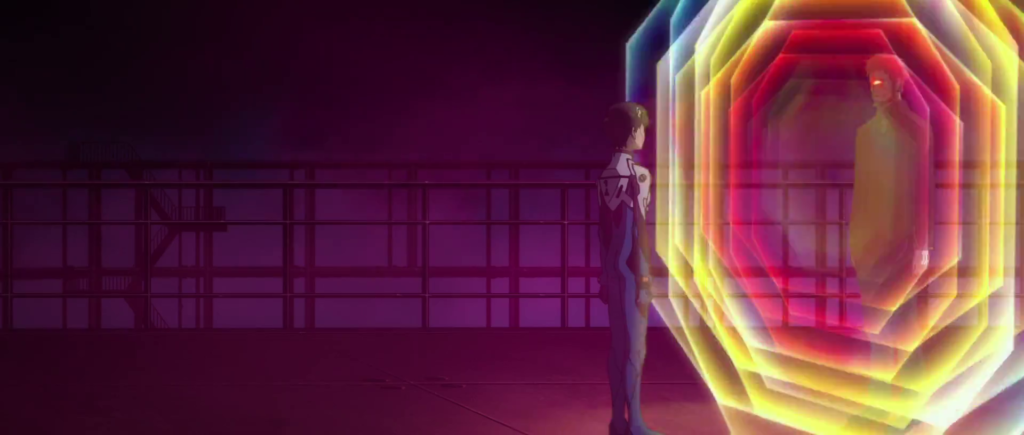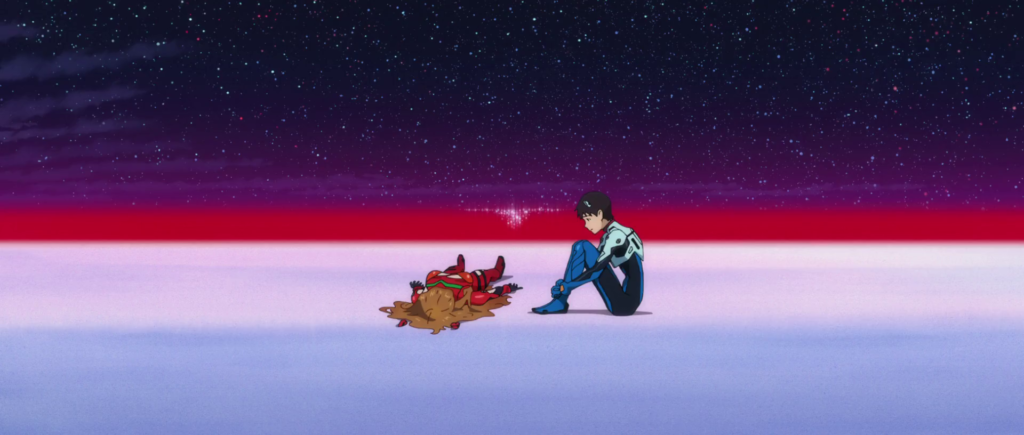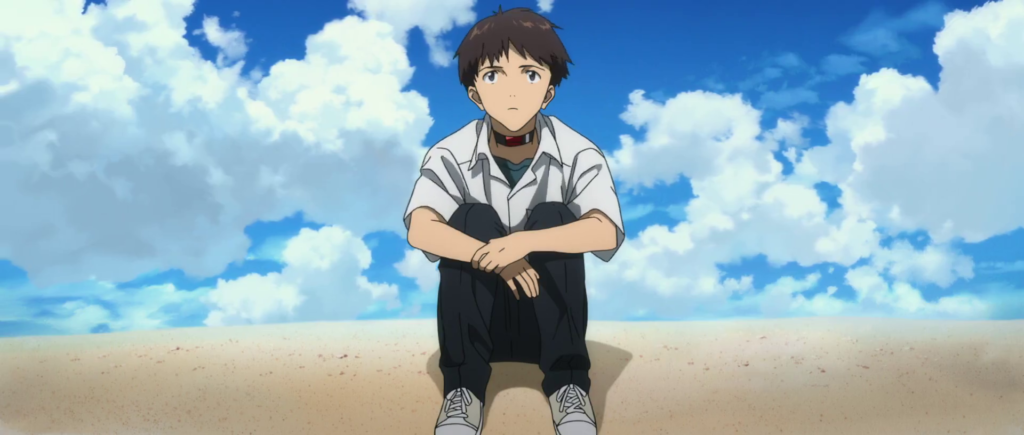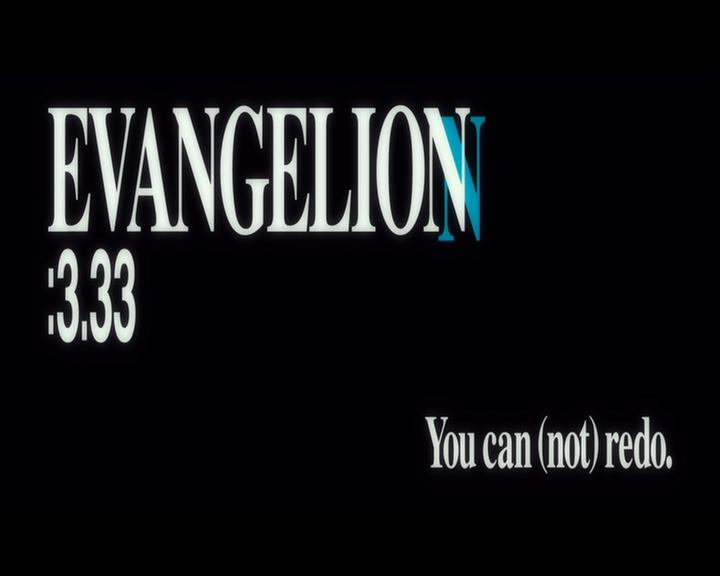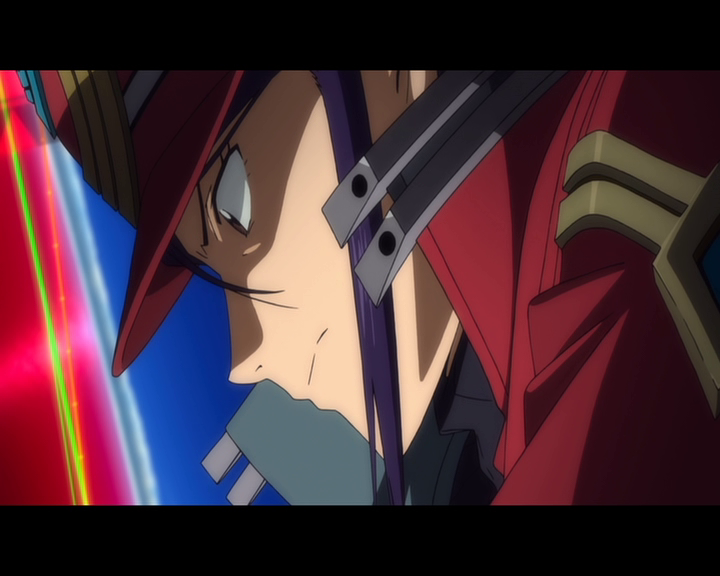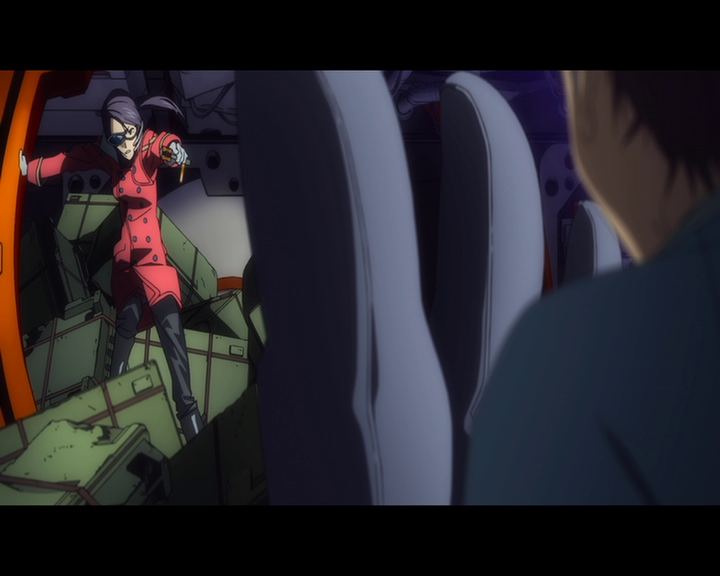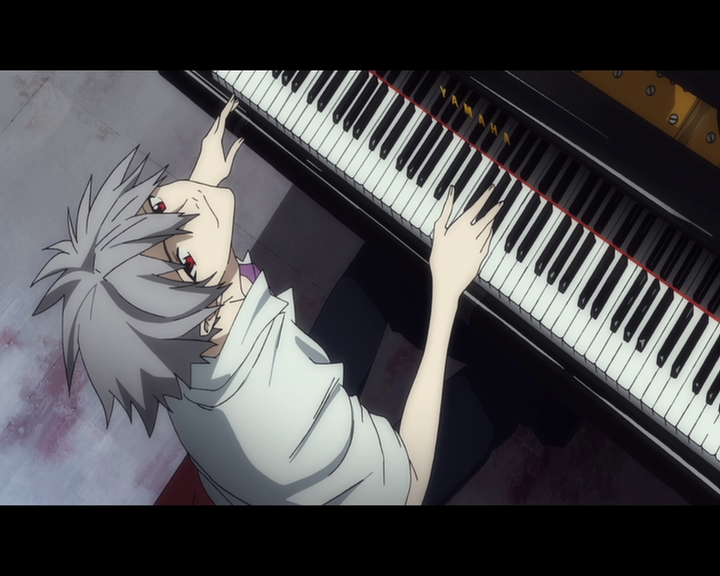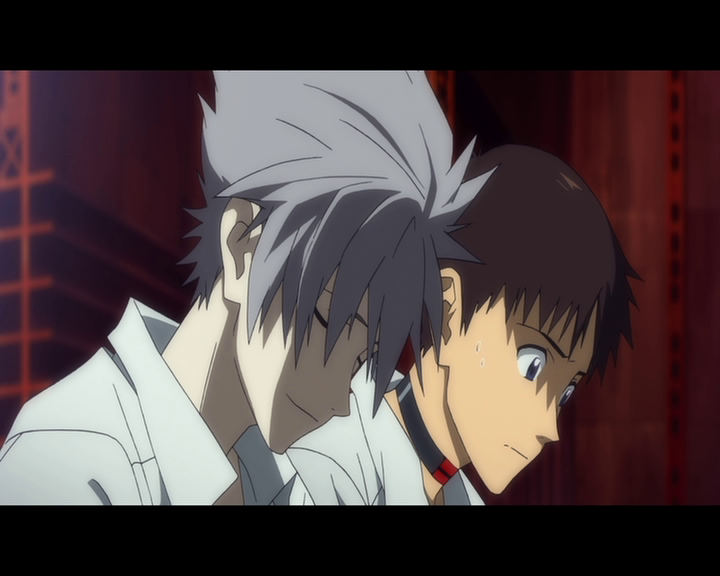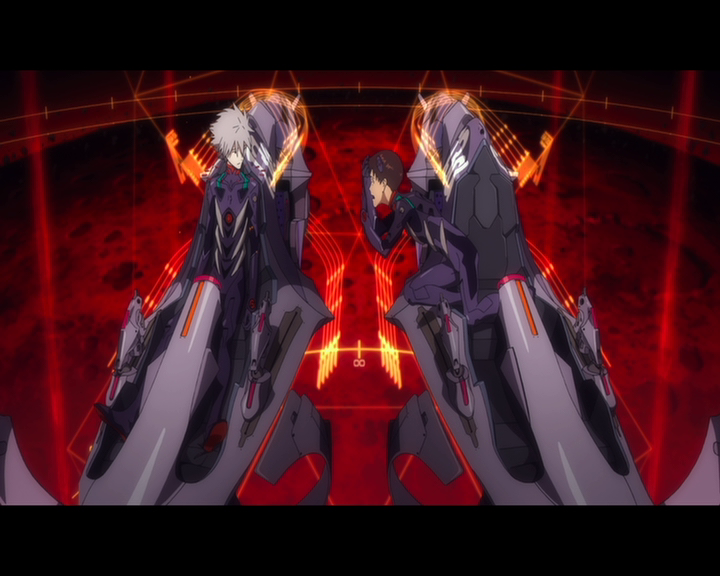-
#470 – Evangelion 3.0 + 1.0 Thrice Upon a Time
Evangelion: 3.0 + 1.0 Thrice Upon a Time (2021)
Film review #470
Directors: Hideaki Anno, Kazuya Tsurumaki, Katsuichi Nakayama, Mahiro Maeda
SYNOPSIS: Following the aversion of the fourth impact, the Eva pilots are left wandering the ruins of Tokyo-3 defeated and deflated, until they are picked up by familiar faces that take them to a settlement where people are surviving in the world that has been left behind by the pilots actions. They do their best to fit into this new world, but they know that their fight is not over, and the final battle to save humanity is edging closer…
THOUGHTS/ANALYSIS: Evangelion 3.0 + 1.0 Thrice Upon a Time is a 2021 Japanese animated film, and the fourth and final film in the Rebuild of Evangelion film series. The film starts out with a battle in Paris, where WILLE are attempting to restore the city to a habitable condition. They succeed, and the focus switches to the three protagonists who we saw at the end of the previous film, wandering the ruins of Tokyo-3 without purpose as their EVAs have been destroyed. They are rescued and taken to a small settlement where they meet some of their old school friends, who have now grown up, while they remain the same age due to a side effect of being EVA pilots. The first part of the film is set in this settlement as the three try to come to terms with what has happened and being around other people. It’s slow paced, but gives ample time to focus on each of the characters individually and their own personal journeys. Although the characters have been psychologically explored in the previous films, it still feels rewarding to do it again, and as this is the final film, provide some closure for their own individual journeys. The themes of finding your place in the world amongst others, and taking responsibility for your actions are fairly clear, and drive the character’s journeys and their individual responses. The plot structure of dedicating the first half of the film to this more slow-paced exploration and the latter half focusing on the action and lore is a good balance, and stops one interrupting the flow of the other. If you’re watching this film, it is probably not your first experience with the franchise, but if it is, you’re definitely not going to be able to keep track of everything that’s happening (this is also true if you’re a die hard fan, but in that case, you’re somewhat expecting not to get everything right away and that some things are open to interpretation).
The latter half of the film is when the action kicks in and the stakes get raised to infinity. The film manages to push itself even further than the TV series and End of Evangelion (The alternate telling of the TV version ending). All of the new elements that were added over the film series are addressed and resolved (apart from those which are intentionally left ambiguous). It even manages to incorporate the events of the TV series as somewhat canon. As such, it is a satisfying conclusion to the series that gives the characters the ability to look forward to the future. The action scenes constantly pile more and more things into them as it gets quite over-the-top, but again, it’s what you come to expect from the series. The characters don’t offer much in the way of surprise, but one or two of them get a small change or development that rounds off their characters, which is nice.
Accompanying the film is the usual over-the-top orchestral soundtrack and visuals that encompass the entire planet. The animation is pretty smooth, but the CG looks a bit unconvincing in some parts; I’m not sure if some corners had to be cut due to the pandemic, but for the most part, it still looks pretty good and consistent with the other films. With a runtime of over two and a half hours, the film feels like it says all it needs to say and do. Overall, Evangelion 3.0 + 1.0 is a satisfying ending to the series that takes its time to tie up its loose ends and give answers to questions that fans have been asking for over twenty years, while still retaining some ambiguity and open-endedness that is a trademark of the series. It definitely feels like there were no constraints with regards to budget or runtime, so the story that Hideaki Anno wanted to tell is told in its entirety. Some small and minor bumps in the animation don’t really hinder the film’s message and execution, and as such it is a solid ending to the film series. It’s definitely not a point to jump into the franchise, but the film series as a whole tells the story of Evangelion in the form I think it was meant to be experienced.
-
#367 – Evangelion 3.0: You Can (Not) Redo
Evangelion 3.0: You Can (Not) Redo (2012)
Film review #367
Director: Hideaki Anno
SYNOPSIS: Shinji Ikari wakes up out of a coma to find he has been unconscious for fourteen years. In that time, the world has changed to a point that it is unrecognisable to him. The people he knew do not need him anymore, and his actions seem to have not mattered. As he sinks back into a state of depression, he finds a new friend; one which accepts him completely for who he is. However, fate has another twist in store for Shinji, as he is once again forced to play his part in the machinations of his Father, and the fate of humanity once again falls into his hands…
THOUGHTS/ANSLYSIS: Evangelion 3.0: You Can (Not) Redo is a 2012 film and the third in the Rebuild of Evangelion series, which remakes and retells the iconic Japanese animated TV series based around giant EVA robots piloted by a group of selected children. The film opens up where the previous one left off…well, except that it is fourteen years after the events of its climax. The film is very neatly separated into three acts, almost as If they were episodes of the TV series. The first act opens with Shinji Ikari waking up out of a coma to find out he has been asleep for fourteen years. In this time, it seems that everything has changed, with everyone he knew now working for WILLE, a new organisation dedicated to stopping NERV and the fourth impact, which will bring about the end of humanity. The ending of the second film saw Shinji finding a purpose and doing what he wanted in order to save Rei Ayanami, a fellow EVA pilot, and when Shinji wakes up at the beginning of this film, he finds that not only he didn’t save Rei after all, but he is no longer needed to pilot the EVA, leaving him without purpose. While the two previous films followed the story of the original series quite closely, this film opens up in a completely new world that has deviated from the source material, so viewers will empathise with Shinji’s position. The problem with this is that it essentially renders the ending of the previous film null and pointless. The ending was a powerful moment in that Shinji finally found his voice and purpose, but cancelling that out completely in the opening scenes in this film doesn’t sit quite right, and sets the film back quite a bit. While Shinji can do nothing, Misato, Asuka and the rest of the people Shinji knew go into battle in the EVAs and their new battleship in quite frankly is an amazing, hugely epic battle. The animation is an exemplary mix of 2D and 3D animation, there’s lots of variety in the action, and the soundtrack is grand. It does go on for quite a while, but it really is a spectacle that is extremely busy and full of shouting orders and military execution that again gives no space for Shinji to really do anything.
Shinji is kidnapped by his Father and told he must pilot a new EVA unit with a co-pilot, another young boy named Kaworu. In his hopeless state of mind, Shinji finds the one person who offers to help and support him unconditionally. After the high stakes, epic battle that consumed the first act, all that energy dissipates to focus on the psychological troubles of Shinji which will not be unfamiliar to fans of the series. The trouble is after the first act and its bombastic battle it struggles to find a footing and feels like a let-down in comparison. There’s a lot of re-visiting of similar themes as Shinji and Kaworu spend time with each other, as well as Shinji’s re-establishing contact with Rei. Again, all these things feel like they were addressed by the end of the second film, and they are being brought up again without adding anything new to the narrative. There’s some effort to make Shinji’s motivations more clear, but this act is very sparse on content.
The Third act sees Shinji and Kaworu enacting Gendo’s (Shinji’s Father) wish to begin the fourth impact and to initiate the next step of human evolution. The tempo picks up again and there’s a balance between the themes and energies of the first two acts. The story however starts to get really complicated, and difficult to follow: even though this is in typical Evangelion style, it still feels like it is throwing in a lot of exposition and elements that are given little space to be considered by the viewer. The trouble is that the first act demonstrated such a powerful action sequence that the climax just can’t compare with it. It tries, but there’s a complete mismatch. The climax is still filled with drama and action, but it’s a middle ground between the first two acts, and it can’t synthesise the two to move beyond them sadly.
Overall, Evangelion 3.0 offers a dramatic departure and something different for the series. Whereas the first two films stuck to the pace and structure of the original series, this film throws the viewer, along with the main character into a completely new world, leaving us in the same position as Shinji in order to empathise with him. I have to emphasise again that the way the film immediately renders the payoff of the previous film null and void feels like a bad move, and sends the film back to square one with the characters. The opening act does a good job of balancing the action with the impact of the situation on Shinji’s character, offering the viewer the chance of empathise with him, but the film does feel like it peaks at the end of the first act, and never quite exceeds what it achieves there. Nevertheless, the animation quality (again, mostly in the first act) is spectacular, the music is epic, and it offers a sense of scale and drama (thanks to its large budget) that the series did not do. The story struggles to find its footing throughout in this new direction, and dims the energy of the film series, but the areas it does excel in balance out the weaknesses which leave the film a mixed bag. More should probably be expected of such a highly regarded and renowned series, but it is not completely a write-off, and sets up a final film which hopefully can provide a fitting ending.
